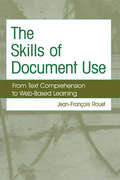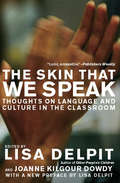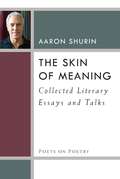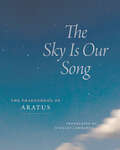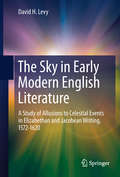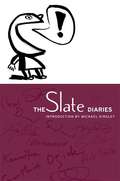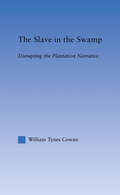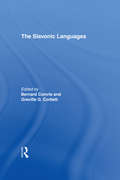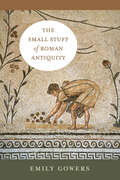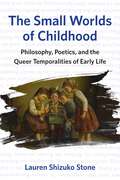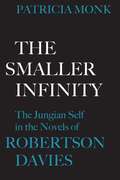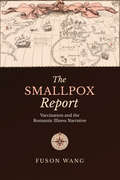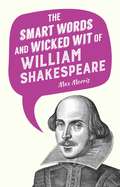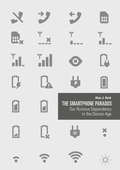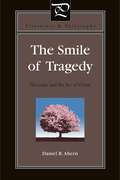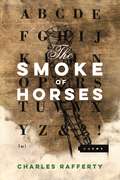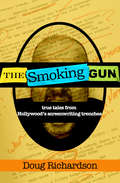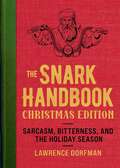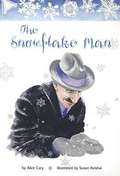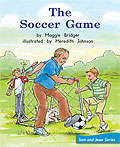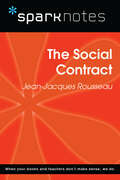- Table View
- List View
The Skills of Document Use: From Text Comprehension to Web-Based Learning
by Jean-Francois RouetThe Skills of Document Use: From Text Comprehension to Web-Based Learning examines functional literacy from a psychological standpoint. It offers a comprehensive discussion of the cognitive skills involved in reading, comprehending, and making use of complex documents. Understanding such skills is important at times when printed and online informat
The Skin That We Speak: Thoughts on Language and Culture in the Classroom
by Lisa Delpit&“Lucid, accessible&” research on classroom language bias for educators and &“parents concerned about questions of power and control in public schools&” (Publishers Weekly). In this collection of twelve essays, MacArthur Fellow Lisa Delpit and Kent State University Associate Professor Joanne Kilgour Dowdy take a critical look at the issues of language and dialect in the education system. The Skin That We Speak moves beyond the highly charged war of idioms to present teachers and parents with a thoughtful exploration of the varieties of English spoken today. At a time when children who don&’t speak formal English are written off in our schools, and when the class- and race-biased language used to describe those children determines their fate, The Skin That We Speak offers a cutting-edge look at this all-important aspect of education. Including groundbreaking work by Herbert Kohl, Gloria J. Ladson-Billings, and Victoria Purcell-Gates, as well as classic texts by Geneva Smitherman and Asa Hilliard, this volume of writing is what Black Issues Book Review calls &“an essential text.&” &“The book is aimed at helping educators learn to make use of cultural differences apparent in language to educate children, but its content guarantees broader appeal.&” —Booklist &“An honest, much-needed look at one of the most crucial issues in education today.&” —Jackson Advocate
The Skin of Meaning: Collected Literary Essays and Talks
by Aaron ShurinIn The Skin of Meaning, Aaron Shurin has collected thirty years' worth of his provocative essays. Fueled by gender and queer studies and combined with radical traditions in poetry, Shurin's essays combine a highly personal and lyrical vision with a trenchant social analysis of poetry's possibilities. Whether he's examining innovations in poetic form, analyzing the gestures of drag queens, or dissecting the language of AIDS, Shurin's writing is evocative, his investigations rigorous, and his point of view unabashed. Shurin's poetic practice braids together many strands in contemporary, innovative writing, from the San Francisco Renaissance to Language Poetry and New Narrative Writing. His mentor-ships with Robert Duncan and Denise Levertov; his studies at New College of California, where he was the first graduate of the epochal Poetics Program; and his years of teaching writing provide a rich background for these essays. San Francisco provides the color and context for formulations of "prosody now," propositions of textual collage, and theories of radical narrativity, while the heart of the book searches through the dire years of the AIDS epidemic to uncover poetic meaning, and "make the heroes heroes. " Book jacket.
The Skull Alphabet Book (Jerry Pallotta's Alphabet Books)
by Jerry PallottaRiddle me this: what animal beginning with 'L' has binocular vision and is a predator?THE SKULL ALPHABET BOOK makes young readers use their brains. Children learn simple facts and hone their critical thinking skills as they deduce the identity of 26 different animals arranged in alphabetical order.Incredibly rich, realistic, and inventive oil paintings by Ralph Masiello lay a trail of clever clues to the identity of the animals represented only by their skulls. Look even closer and find hidden in the unique settings portraits of 43 of the presidents of the United States.
The Sky (Fountas & Pinnell LLI Green #Level A, Lesson 36)
by Dana SamuelsFountas and Pinnell Leveled Literacy Intervention Green System -- 1st Grade
The Sky Is Our Song: The "Phaenomena" of Aratus
by AratusAn ancient Greek guide to the heavens, translated in a new accessible modern English edition. A poetic guide to the heavens, the Phaenomena of Aratus—dating from around 270 BCE—was widely known across the ancient world, second only in fame to the works of Homer. Beginning with an invocation to Zeus, the poem describes the constellations of the northern and southern skies, the celestial sphere, and weather signs. Aratus’s vivid work offered a complete handbook of astronomy, constellations, and weather, and this treatise on the night sky was later translated or adapted by luminaries including Cicero, Virgil, and Ovid. The Phaenomena remained popular throughout the Renaissance and had more than sixty printed editions by the early seventeenth century, but its fame has faded in the modern world. With this edition, renowned translator and amateur astronomer Stanley Lombardo renders Aratus’s poem in reader-friendly vernacular English verse. Complete with endnotes, an accessible introduction, and astronomically accurate illustrations, The Sky Is Our Song brings this master poet’s celebration of the sky to a twenty-first-century audience, inviting new readers to follow Aratus on a visual journey through star signs, moon phases, weather phenomena, and all wonders of the heavens.
The Sky in Early Modern English Literature
by David H. LevyAstronomy is not just a subject unto itself. We all look at the sky, and it has always been a fertile source of guidance and inspiration in art, music, and literature. This book explores the sky's appearances in music and art, but focuses most on the sky's enormous presence in early modern English literature. The author concentrates on William Shakespeare, whose references to the sky far exceed the combined total of all his contemporaries. Venturing into the historical context of these references, the book teaches about the Supernovae of 1572 and 1604, the abundant comets of this period, eclipses, astrology and its relation to the night sky at the time, and the early years of the telescope and how the literature of the time relates to it. This book promises to open doors between two great fields of study by inspiring readers to look for their own connections between astronomy and literature, and by helping them to enjoy the night sky itself more completely.
The Slate Diaries
by Judith Shulevitz Jodi Kantor Cyrus KroneEach week the editors of Slate, one of the on-line literary magazines, ask a different person to keep a diary. The Slate Diaries is a selection of some of the best of those diaries. Contributors include distinguished writers.
The Slave in the Swamp: Disrupting the Plantation Narrative (Literary Criticism and Cultural Theory)
by William Tynes CowaFirst Published in 2005. Routledge is an imprint of Taylor & Francis, an informa company.
The Slavonic Languages (Routledge Language Family Series)
by Professor Greville Corbett Professor Bernard ComrieIn this scholarly volume, each of the living Slavonic languages are analysed and described in depth, together with the two extinct languages - Old Church Slavonic and Polabian. In addition, the various alphabets of the Slavonic languages - particularly Roman, Cyrillic and Glagolitic - are discussed, and the relationships of the Slavonic languages to other Indo-European languages and to one another, are explored. The last chapter provides an account of those Slavonic languages in exile, for example, Russian, Ukrainian, Polish, Czech and Slovak in the USA.Each language-chapter is written by an expert in the field, in a format designed for comparative study. Information on each language includes: an introductory description of social context and development (where appropriate); a discussion of phonology; a detailed presentation of synchronic morphology, noting major historical developments; comprehensive treatment of syntactic properties; a discussion of vocabulary; an outline of main dialects; and an extensive bibliography, listing English and other sources.
The Sleepy Little Alphabet: A Bedtime Story from Alphabet Town
by Melissa Sweet Judy SierraA fun read-aloud for little ones who are learning their ABCs.It's sleepy time in Alphabet Town. But the twenty-six little letters of the alphabet all have something they need--or want--to do before big-letter moms and dads tuck them in. Not since the classsic Chicka Chicka Boom Boom has there been such an appealing way to teach the youngest child the ABCs while providing a one-minute goodnight story. Of course, Melissa Sweet's animated watercolor, pencil, and collage illustrations may beg for a little more time to match up all the toys with the right letters, and Judy Sierra's rollicking rhymed story will want to be heard again and again. Okay, so maybe it's a three-minute story!
The Small Stuff of Roman Antiquity (Sather Classical Lectures)
by Emily GowersA free ebook version of this title is available through Luminos, University of California Press’s Open Access publishing program. Visit www.luminosoa.org to learn more. Why are the small and unimportant relics of Roman antiquity often the most enduring, in material form and in our affections? Through close encounters with minor things such as insects, brief lives, quibbles, irritants, and jokes, Emily Gowers provocatively argues that much of what the Romans dismissed as superfluous or peripheral in fact took up immense imaginative space. It was often through the small stuff that the Romans most acutely probed and challenged their society’s overarching values and priorities and its sense of proportion and justice. There is much to learn from what didn’t or shouldn’t matter. By marking the spots where the apparently pointless becomes significant, this book radically adjusts our understanding of the Romans and their world, as well as our own minor feelings and intimate preoccupations.
The Small Worlds of Childhood: Philosophy, Poetics, and the Queer Temporalities of Early Life
by Lauren Shizuko StoneThe Small Worlds of Childhood argues that prose representations of bourgeois childhood contain surprising opportunities to reflect on the temporality of experience. In their narratives of children at home in their everyday worlds, Adalbert Stifter, Rainer Maria Rilke, and Walter Benjamin are not only able to shed a unique light on key issues in the history of philosophy. They also offer a queer critique of the normative expectation that the literature of childhood is oriented toward the future. Stone shows that when writers engage in philosophical storytelling, showing children tarrying in quotidian experience, they dislodge childhood from its nostalgic value to grown-ups and the heteronormative demand to grow up. Such stories of children as philosophical subjects thus take on their own lingering, backwards, or all together strange sense of time. Stone demonstrates the necessity of recognizing how texts on childhood—before and beyond Freud—engage literary language in the service of a variety of philosophical attitudes, reminding us how poetic techniques can tell us something extraordinary about moments of ordinary experience and the manner with which humans, and especially children, cognize the world. By bringing canonical German-language literary and philosophical traditions into conversation with current English-language queer approaches, Stone opens a queer counter-history of German and Austrian realist and modernist literature. This title is available from the publisher on an open-access basis.
The Smaller Infinity: The Jungian Self in the Novels of Robertson Davies (The Royal Society of Canada Special Publications)
by Patricia MonkThe concepts of the Jungian theory of personality have long held considerable interest for Robertson Davies, both outside his fiction and as the explicit subject of The Manticore. This interpretive study discusses Davies' use of Jungian psychology as both a structural and a thematic device and touches on related themes of illusion and the nature of reality.Drawing extensively on early reviews and articles, Monk sketches the background to Davies' preoccupation with psychology, revealing its influence on his early writings, including the effect of the Jungian concept of the persona on Shakespeare's Boy Actors and the ocncept of the shadow on the Samuel Marchbanks material. She also notes the introduction of the important themes of illusion, as a mask for reality, and ambivalence which are extended in the Salterton trilogy, Fifth Business, and The Manticore. Monk concludes that World of Wonders reveals an apparent but unsuccessful attempt on Davies' part to get away from Jungian psychology, and an exploration of alternative myths of human identity: the romance myth of the hero and the Spenglerian myth of the Magian soul.
The Smallpox Report: Vaccination and the Romantic Illness Narrative
by Fuson WangAfter the COVID-19 pandemic, vaccination has become synonymous with an opaque biopower that legislates compulsory immunization at a distance. Contemporary illness narratives have become outlets for distrust, misinformation, reckless denialism, and selfish noncompliance. In The Smallpox Report, Fuson Wang rewinds this contemporary impasse between physician and patient back to the Romantic-era origins of vaccination. The book offers a literary-historical account of smallpox vaccination, contending that the disease’s eventual eradication in 1980 was as much a triumph of the literary imagination as it was an achievement of medical Enlightenment science. Wang traces our modern pandemic-era crisis of vaccine hesitancy back to Edward Jenner’s publication of his treatise on vaccination in 1798, the first rumblings of an anti-vaccination movement, and vaccination’s formative literary history that included authors such as William Wordsworth, William Blake, John Keats, Mary Shelley, and Arthur Conan Doyle. The book concludes with a re-examination of the current deeply contentious public discourse about vaccines that has arisen in the wake of the COVID-19 pandemic. By recovering the surprisingly literary genres of Romantic-era medical writing, The Smallpox Report models a new literary historical perspective on our own crises of vaccine refusal.
The Smart Words and Wicked Wit of William Shakespeare
by Max Morris“Better a witty fool, than a foolish wit,” said the world’s greatest and most preeminent English writer of all time, William Shakespeare.Have you ever wanted to quote the most quoted writer in the English language? Deliver the most inventive and debasing Shakespearean insult (“Would thou wert clean enough to spit upon!”)? Recite titillating love poetry like a modern-day Romeo to his (or her) Juliet? Or commit a learned wisdom about life’s woes to memory? The Smart Words and Wicked Wit of William Shakespeare is the perfect pocket book to carry around in your arsenal. Laugh, cry, rage, and muse along with beloved (or not so beloved) Shakespeare characters like Hamlet, Lady Macbeth, King Lear, and Cleopatra on the topics of love, art, beauty—as well as life’s most irreverently relevant insights. Full of savvy wisdoms from works such as Twelfth Night, Othello, A Midsummer Night’s Dream, As You Like It, and many others, this inspiring collection compiles the wisest and wittiest Shakespearean quotations that speak of the writer’s enduring legacy—even in contemporary pop culture.
The Smartphone Paradox: Our Ruinous Dependency in the Device Age
by Alan J. ReidThe Smartphone Paradox is a critical examination of our everyday mobile technologies and the effects that they have on our thoughts and behaviors. Alan J. Reid presents a comprehensive view of smartphones: the research behind the uses and gratifications of smartphones, the obstacles they present, the opportunities they afford, and how everyone can achieve a healthy, technological balance. It includes interviews with smartphone users from a variety of backgrounds, and translates scholarly research into a conversational tone, making it easy to understand a synthesis of key findings and conclusions from a heavily-researched domain. All in all, through the lens of smartphone dependency, the book makes the argument for digital mindfulness in a device age that threatens our privacy, sociability, attention, and cognitive abilities.
The Smile of Tragedy: Nietzsche and the Art of Virtue (Literature and Philosophy #32)
by Daniel R. AhernIn The Smile of Tragedy, Daniel Ahern examines Nietzsche’s attitude toward what he called “the tragic age of the Greeks,” showing it to be the foundation not only for his attack upon the birth of philosophy during the Socratic era but also for his overall critique of Western culture. Through an interpretation of “Dionysian pessimism,” Ahern clarifies the ways in which Nietzsche sees ethics and aesthetics as inseparable and how their theoretical separation is at the root of Western nihilism. Ahern explains why Nietzsche, in creating this precursor to a new aesthetics, rejects Aristotle’s medicinal interpretation of tragic art and concentrates on Apollinian cruelty as a form of intoxication without which there can be no art. Ahern shows that Nietzsche saw the human body as the vessel through which virtue and art are possible, as the path to an interpretation of “selflessness,” as the means to determining an order of rank among human beings, and as the site where ethics and aesthetics coincide.
The Smile of Tragedy: Nietzsche and the Art of Virtue (Literature and Philosophy)
by Daniel R. AhernIn The Smile of Tragedy, Daniel Ahern examines Nietzsche’s attitude toward what he called “the tragic age of the Greeks,” showing it to be the foundation not only for his attack upon the birth of philosophy during the Socratic era but also for his overall critique of Western culture. Through an interpretation of “Dionysian pessimism,” Ahern clarifies the ways in which Nietzsche sees ethics and aesthetics as inseparable and how their theoretical separation is at the root of Western nihilism. Ahern explains why Nietzsche, in creating this precursor to a new aesthetics, rejects Aristotle’s medicinal interpretation of tragic art and concentrates on Apollinian cruelty as a form of intoxication without which there can be no art. Ahern shows that Nietzsche saw the human body as the vessel through which virtue and art are possible, as the path to an interpretation of “selflessness,” as the means to determining an order of rank among human beings, and as the site where ethics and aesthetics coincide.
The Smoke of Horses (American Poets Continuum)
by Charles RaffertyIn this fascinating new collection by longtime poet Charles Rafferty, evocative prose poems insert strange and mysterious twists into otherwise mundane middle-class scenarios. With wonderful intelligence and imagination, these compact, revelatory poems show us what is possible when we jettison accepted devices of thought for methods that are stranger, and much truer.Charles Rafferty is the author of six collections of poetry, one collection of stories, and two poetry chapbooks. He lives in Sandy Hook, CT, where he works at a technology research firm, directs the MFA program at Albertus Magnus College, and teaches in the Westport Writers' Workshop.
The Smoking Gun
by Doug RichardsonWhat do you know, really?Sure. Having enough talent to act, direct, or write a screenplay is one set of skills. But navigating both the main streets and back alleys of Hollywood cannot be done with GPS. Ride shotgun with screenwriting and producing veteran Doug Richardson as he skillfully - yet so amusingly - lives, dies, survives, and thrives in the entertainment trenches.The Smoking Gun is more than a collection of true Hollywood stories, box office success and jaw-dropping failures. It's a guided tour behind the curtain of an industry that is equal parts bright lights, backstabbing, and double-dealing. Buckle up, step into your steel jockstrap, and get ready to do battle in the carnival funhouse otherwise known as showbiz.
The Snark Handbook: Sarcasm, Bitterness, and the Holiday Season (Snark Series)
by Lawrence DorfmanBah! Humbug! It&’s that time of year again….Time to spend too much, drink too much, eat too much, smile falsely, dig down deep to try and find &“good cheer,&” battle crowds, try to find parking in over-crowded lots, ignore surly clerks, bartenders, waiters, valets, and parking lot attendants, all in the pursuit of that moment of happiness known throughout the world as…dun, dun, dun: the Holidays. Has there ever been a time more suited to tapping into snark? With commentary, jokes, and quotes regarding Thanksgiving, Christmas, Hanukkah, Kwanza, New Year&’s; on bad presents, worse in-laws, horrible children, and much more glorious excess. Enjoy such rotten sugar plums as: • &“Santa Claus has the right idea. Visit people once a year.&”—Victor Borge • &“If someone screws up on their gift, there are seven more days to correct it...No awkward explanations of virgin birth...No Irving Berlin songs.&”—Among the Top Ten Reasons to Love Hanukkah • &“What I don&’t like about office Christmas parties is looking for a job the next day.&”—Phyllis DillerThe Snark Handbook: Christmas Edition is destined to be a holiday classic.
The Snowflake Man (Comprehension Power Readers)
by Alice CaryThe Snowflake Man' lays open the life of a simple, self-educated, sensitive man who pursued natural beauty with microscope and camera for nearly fifty years.
The Soccer Game (Fountas & Pinnell LLI Green #Level F, Lesson 63)
by Maggie BridgerFountas and Pinnell Leveled Literacy Intervention Green System -- 1st Grade
The Social Contract (SparkNotes Philosophy Guide)
by SparkNotesThe Social Contract (SparkNotes Philosophy Guide) Making the reading experience fun! SparkNotes Philosophy Guides are one-stop guides to the great works of philosophy–masterpieces that stand at the foundations of Western thought. Inside each Philosophy Guide you&’ll find insightful overviews of great philosophical works of the Western world.
